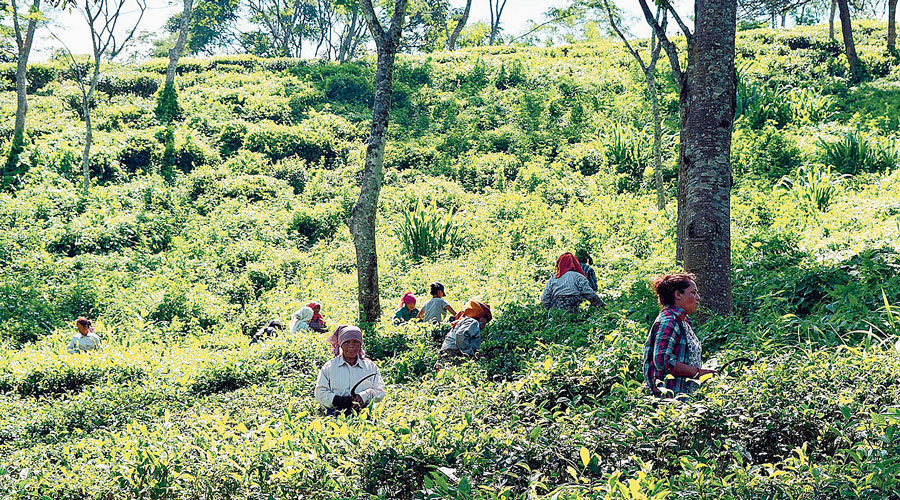Representatives of tea planters in north Bengal and Assam have sought the immediate intervention of the Narendra Modi government to address the shortage in coal supply at the tea estates and the rise in their cost of production.
In tea gardens, coal is required extensively for processing tea leaves in the factories, which include withering, rolling and drying.
“Earlier, coal was supplied (to the tea gardens) from Meghalaya and from North Eastern Coalfields. But supply has stopped from both these sources following directives issued on environmental grounds. As a result, the gardens have to depend on the coal supplied from Raniganj and Asansol and because of paucity in supply even imported from Indonesia. As a result, the cost of production has really shot up,” said Prabir Bhattacharjee, the secretary general of the Tea Association of India (TAI).
Earlier, coal was available at Rs 8,000 per metric tonne. Now, one has to pay around Rs 20,000 per metric tonne, Bhattacharjee said. “That’s a 1.5 times hike,” he said.
Tea manufacturing requires a lot of coal, said stakeholders.
Sources in the tea sector said that out of the total requirement of energy, around 21 per cent is of electrical energy and rest is supplied by conventional fuels, mainly coal.
“A conservative estimation shows around 1.125 kilos of coal is needed to make one kilo of tea. Now, if we go by the tea production of Bengal and Assam, around 8.79 lakh tonnes of coal is required for unhindered manufacturing of tea in these two states. We have already written to the Centre, seeking necessary help for the industry,” Bhattacharjee added.
The issue has also made Raju Bista, the BJP MP of Darjeeling, write to Prahlad Joshi, Union minister of coal and mines.
Tea trade union leaders are also worried about the paucity of coal and rising cost of production, all of which affect the workers.
“The central government should immediately see to it that adequate coal is supplied to the tea industry that
gives jobs to lakhs. Any disruption in tea production because of coal shortage can affect the industry and its workforce which is undesirable,” said Mani Kumar Darnal, a senior trade union leader of Dooars.










